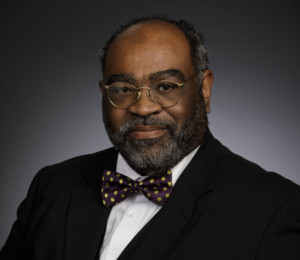As I approach another birthday, I find myself spending more time staring in the mirror. It’s not vanity but rather a curious gaze. I see a few more frown lines and gray hair. But I’m curious as to what other people see. Do they see a father of two non-incarcerated sons? Do they see a black man with multiple graduate degrees? Or do they just see another middle-aged black man with an AARP card?
Sixty years ago, Martin Luther King, Jr. challenged the world to look beyond one’s physical appearance and see the person underneath. Standing before a replica of the Great Emancipator, he reminded the world that 100 years after so-called emancipation, blacks were still considered second-class American citizens. Even with more freedoms than their fore-parents in 1963, King reminded the world that blacks were not satisfied with the mirage of social progress as long as they were still victims of random and purposeful acts of violence. Sadly, most of white America watched in stunned silence as these Jim Crow atrocities continued throughout the country. I don’t care what books various state governors ban from being taught in their classrooms. This country must never forget what happened to the Scottsboro Boys, Emmitt Till, or George Floyd. I’m sorry, but I digress.
On August 26, 2023, “tens of thousands” met in Washington, D.C., celebrating that once-in-a-lifetime moment in history. A new generation of black leaders echoed the very same sentiments that King did 60 years earlier: an end to hate and violence against the black community. Sadly, almost 160 years after the so-called emancipation, blacks still suffer from random and purposeful acts of violence.
A lot has changed since 1963. Computers are commonplace. Nearly every child has a cell phone. We’ve put footprints on the moon and cameras on Mars. And artificial intelligence is about to change how we educate our children forever. Yet, what has not changed is the blatantly open attacks on the black community. It’s time to stop hiding behind smoke screens like the proliferation of guns on the streets and the severity of mental illness and address the cancer in our society: racial hatred.
In my opinion, it is no coincidence that the recent mass shooting of black folks occurred on the same day as the celebration of the March on Washington. I believe the calls to hate were answered loud and clear at the Dollar General in Jacksonville, FL, by a young man who professed his hatred of black folks. We claim to live in a place where one can be anything one desires. But we also live in a place where a black child can be killed walking home from a convenience store, and the world watches in stunned disbelief as a jury of white folks sends his admitted killer home after an acquittal. I consider myself a pretty smart guy, but I don’t understand how this happens without societal outrage. The kind of outrage that leads to meaningful change. We can no longer see these atrocities and say, “Oh, that’s too bad,” and go about our lives like everything is normal and ok. Everything is not normal and ok. I’m outraged.
Maybe I’m spending too much time in the mirror. But there was so much hope at that once-in-a-lifetime moment 60 years ago. The guy looking back at me from the mirror knows he’s had opportunities over the last 60 years that his parents couldn’t even dream of. And he’d be the first to remind me that whatever he’s accomplished was only through the prayers of those parents and the endless mercies of a faithful God. Still, I wonder what people see when they look at him. And the fact that I still have to wonder makes my stomach a little queasy and probably brings a tear to King’s eyes, 60 years later.
Dr. Ronald E. Goodwin is a Professor and Interim Division Head in the Division of Social Sciences at Prairie View A&M University.

